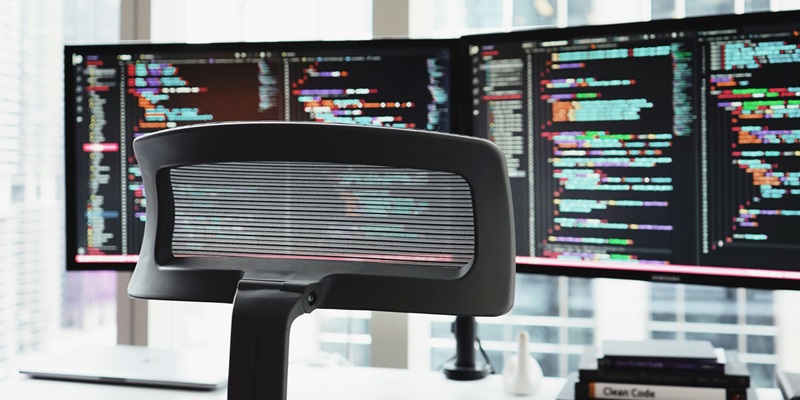In recent technological advancements, Orca Security has introduced a new application designed to enhance cybersecurity by scanning source code in GitHub and GitLab repositories for vulnerabilities. This significant development aims to identify potential threats early in the software development lifecycle, greatly improving application security. Orca Security’s side-scanning technology ensures comprehensive detection by accessing block storage in a read-only mode, enabling it to create detailed risk profiles without needing to deploy and maintain cumbersome agent software. This approach promises to catch vulnerabilities before they reach production environments, thus minimizing risks effectively.
Early detection of vulnerabilities is paramount in today’s fast-paced software development world, where the trend increasingly leans towards leftward security shifts. Traditional methods of addressing security post-deployment are often inefficient and insecure. By integrating vulnerability scans at the source code level, Orca Security enables DevSecOps teams to streamline their workflows and address security concerns proactively. This early intervention ensures that risks are mitigated before they can develop into more significant issues, preventing the deployment of vulnerable code and fostering more robust application security frameworks.
The Importance of Early Vulnerability Detection
Addressing vulnerabilities early in the software development lifecycle is critical, as it prevents potential security breaches that could have far-reaching consequences. Most current practices focus on fixing vulnerabilities post-deployment, but this reactive approach can leave software exposed to cyberattacks for extended periods. Orca Security’s innovative solution facilitates early detection and remediation, equipping developers with tools to find and fix issues before they become exploitable. By prioritizing early vulnerability scans, Orca Security’s technology ensures that developers can address problems quickly and efficiently, reducing the workload on security teams and enhancing overall software security.
Moreover, the integration of Orca Security’s technology with DevSecOps practices represents a critical juncture in the evolution of application security. The side-scanning approach, which involves read-only access to block storage, ensures that risk profiles are accurately created without the need for agent software deployment and maintenance. This integration simplifies the process for developers and security teams alike, enabling them to focus on actual security issues rather than managing security tools. This advancement underscores Orca Security’s commitment to enhancing early vulnerability detection and represents a significant step toward more secure software development practices.
Addressing Industry Trends and Challenges
The software development industry is witnessing a significant shift towards leftward movement in the software development lifecycle, where the responsibility for application security is increasingly delegated to developers. This trend aims to catch vulnerabilities early, but it also presents challenges such as overwhelming alert volumes and insufficient remediation guidance. Orca Security’s solution addresses these challenges by providing detailed remediation instructions alongside vulnerability reports, thus streamlining the workflow for DevSecOps teams. This approach not only enhances the efficiency of detecting and fixing vulnerabilities but also ensures that developers are better equipped to manage security issues effectively.
A recent Orca Security report highlights the urgency of addressing vulnerabilities early, revealing that 62% of organizations have severe vulnerabilities and 70% have unencrypted secrets in their code repositories. Such statistics underscore the critical need for proactive vulnerability detection mechanisms. By integrating their side-scanning technology with AI capabilities, Orca Security simplifies the identification of core issues and provides actionable insights to developers. This forward-looking approach not only supports the industry trend of shifting security measures left but also addresses the practical challenges faced by organizations in managing and prioritizing security alerts.
The Role of Artificial Intelligence in Security
Orca Security recently unveiled a groundbreaking application designed to bolster cybersecurity by scanning source code in GitHub and GitLab repositories for vulnerabilities. This development aims to identify potential threats early in the software development lifecycle, thus significantly improving application security. Utilizing Orca Security’s side-scanning technology, the app ensures comprehensive detection by accessing block storage in a read-only mode. This method allows it to create detailed risk profiles without deploying and maintaining cumbersome agent software, promising to catch vulnerabilities before they reach production environments and effectively minimizing risks.
In today’s fast-paced software development landscape, early detection of vulnerabilities is crucial, especially as the industry moves towards leftward security shifts. Traditional methods that address security post-deployment are often inefficient and risky. By incorporating source code-level vulnerability scans, Orca Security enables DevSecOps teams to streamline workflows and proactively tackle security issues. This early intervention is key to mitigating risks before they escalate, preventing the deployment of vulnerable code, and fostering more robust application security frameworks.

